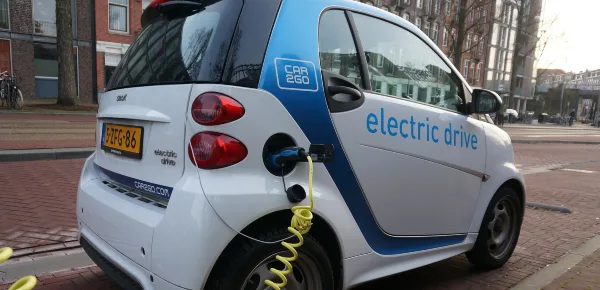Private cars are the result of a society built upon individualism. Consumerism is almost a religion nowadays and the majority of us are reluctant to share. But, if you think of it, sharing is the most intelligent way to have access to something without having to work excessively to do so.
In our modern feverish society, there is almost no time for leisure, but our free time is, in fact, directly proportional to our life quality.
More time at home also means better education for our children, which implies a better future society. One area to consider sharing and the environment is electric car sharing. Colorado Politics website notes, "Electric-powered cars do not burn gasoline and have no tailpipes. They’re far cleaner than their gas counterparts and are getting cleaner every year as utilities transition toward using more renewable energy sources that ultimately power these cars."
Electric vehicles versus internal combustion vehicles
At present, there are numerous companies working hard to produce both affordable and attractive electric vehicles.
Many people may think petrol engines are more efficient than their electric competitors, but data shows that the contrary is actually true. Petrol-engine cars waste almost 80 percent of the energy contained in the fuel they consume, and that happens because of the many heavy parts moving within it in order to convert the vertical movement of pistons into the rotational one needed to make a car move on wheels. On the other hand, electric vehicles waste on average only 20 percent of the energy they consume, meaning that even if you were to produce electricity by burning gasoline, it would still be greener and more efficient than using petrol engines.
Increasing fuel costs and developing charging station infrastructure
Due to constantly increasing fuel costs, a growing number of people are switching to car sharing services instead of using their private cars, and the charging station infrastructure both in Europe and the UK is growing in order to fulfill the needs of an entire population using electric cars.
Many people owning electric vehicles also decided to install a private charger at home in order to be independent, but not everybody possesses a garage and laying an electric cable across the pavement to recharge your private car might be considered illegal.
So, what's the future for electric vehicles and car sharing?
EV technology is now sufficiently developed to allow us to use it as a main means of transport and we surely need to invest as much as possible in infrastructure to make it a widespread reality.
In Canada, Elektrek reports they "offer incentives to encourage more Canadians to buy zero-emission vehicles." But in the UK, the most viable way to use electric vehicles efficiently could probably be by facilitating the creation of a highly efficient electric car and scooter sharing net all over the country and Europe. That would be a great way to employ a large number of people and a big step towards a new technologically advanced and freer society.
